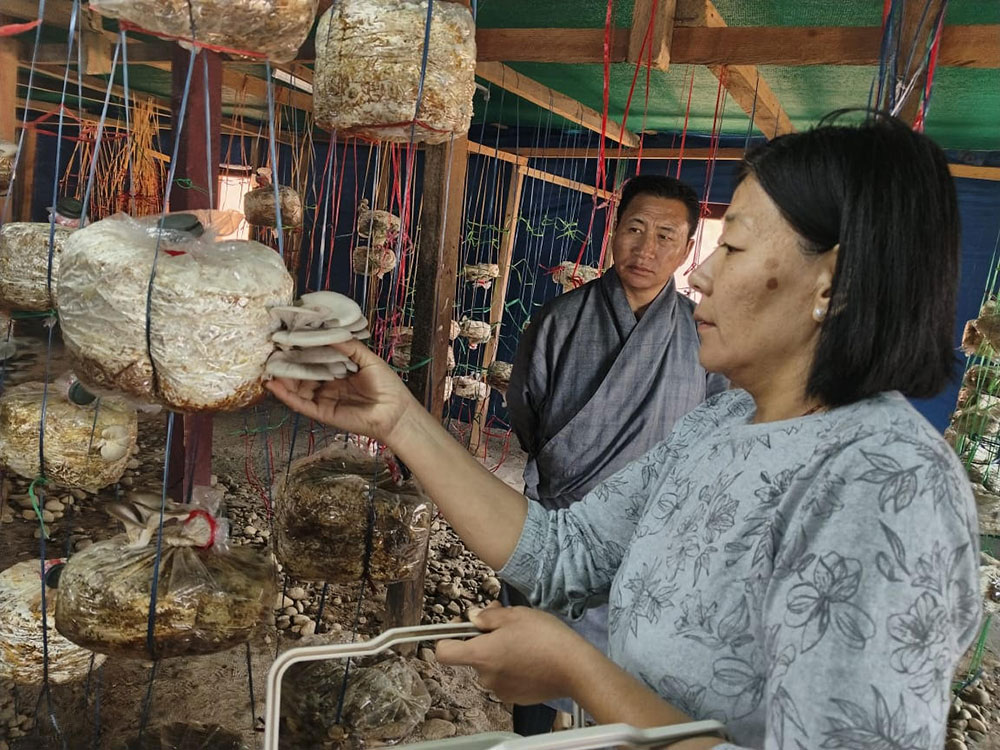Chencho Dema
Punakha—Following the success of the first urban farming initiative, as a component of the Covid-19 contingency strategy in 2020, Department of Agriculture has initiated the second phase, now named as the Peri-urban and Urban Farming (PUUF) initiative.
The project worth about Nu 8 million started in January last year to consolidate the insights gained from the inaugural phase while integrating new lessons learned.
The primary aim of the first phase was to offer relief and contingency measures for youth affected by Covid-19, particularly those living on the outskirts of urban areas. It was also to foster group work among youths, focusing on high-value crops, shops, and other ventures to generate sustainable income and livelihoods.
The project involved 300 youths in Thimphu, mostly in gardening who had the opportunity to earn some revenue from the surplus sale of vegetables.
Project coordinator of PUUF, BB Rai said the second phase would be done in two modes. The first will provide support to any urban residents keen on establishing or expanding their vegetable gardens. Seeds and technical guidance would be provided. The second approach targets groups, particularly youth groups consisting of at least five members.
There are 30 registered groups to implement the PUUF activity, mostly from Thimphu, Punakha, Paro and Chhukha for the two years period. About 200 residents of Thimphu have registered to establish gardens.
The project is focusing on priority crops, particularly high-value ones such as strawberries, asparagus, mushrooms, and hydroponic crops.
BB Rai said there are hydroponic setups in Thimphu, shiitake mushroom cultivation in Paga village in Chhukha, strawberry farming in Paro, as well as shiitake and oyster mushroom cultivation in Dompala in Punakha.
The DoA has introduced protected strawberry farming and shiitake mushroom production under greenhouse conditions. Additionally, PUUF have initiated asparagus cultivation within the baltic panels in collaboration with the DSP Dessung program at Pangrizampa in Dechencholing.
About 100 acres of barren land has been leased for peri-urban and urban farming across Thimphu, Punakha, Paro, and Chhukha.


